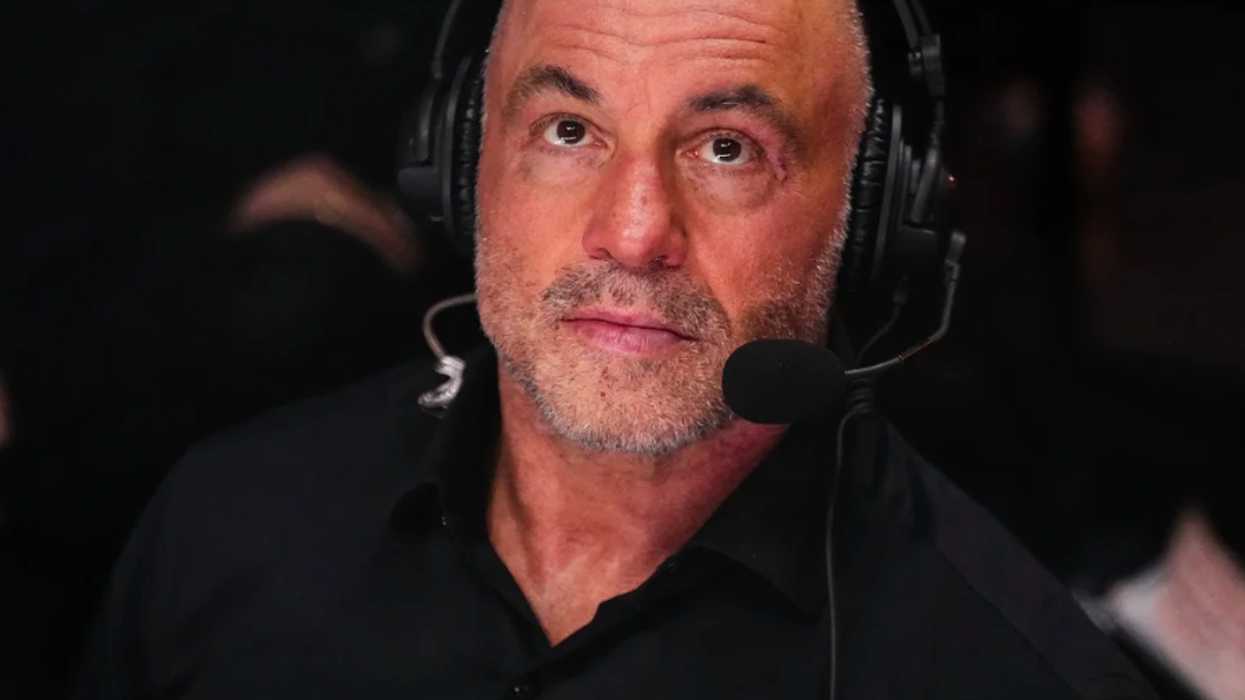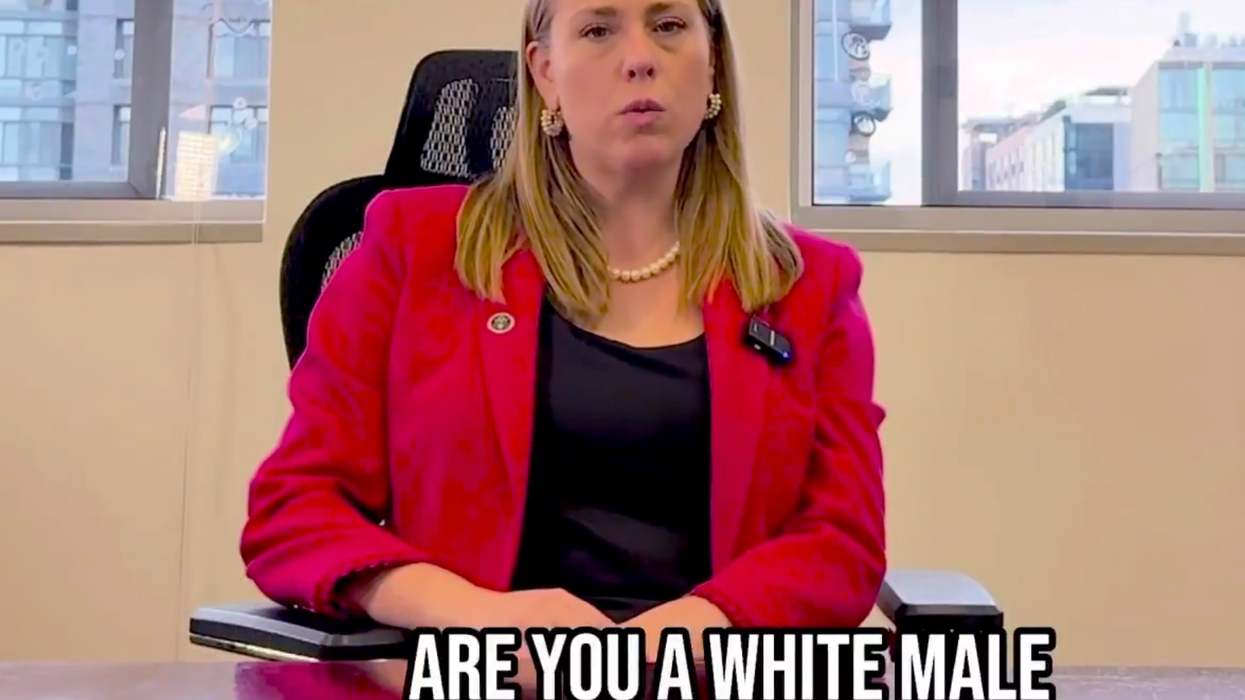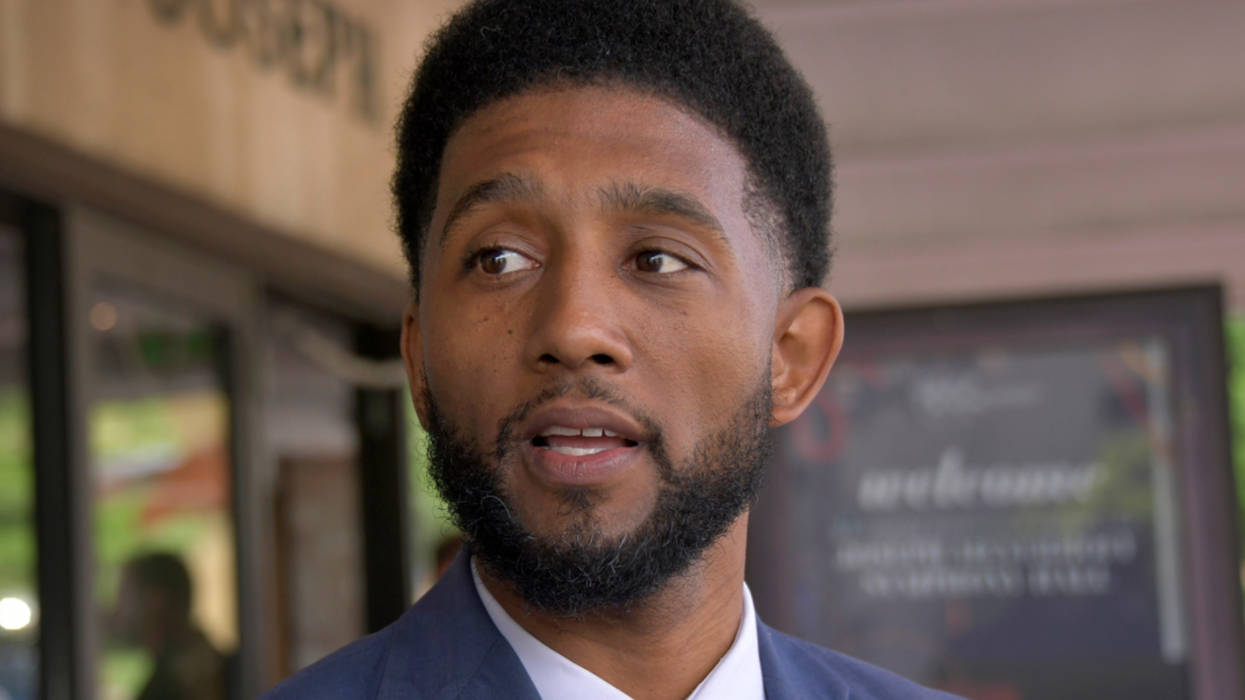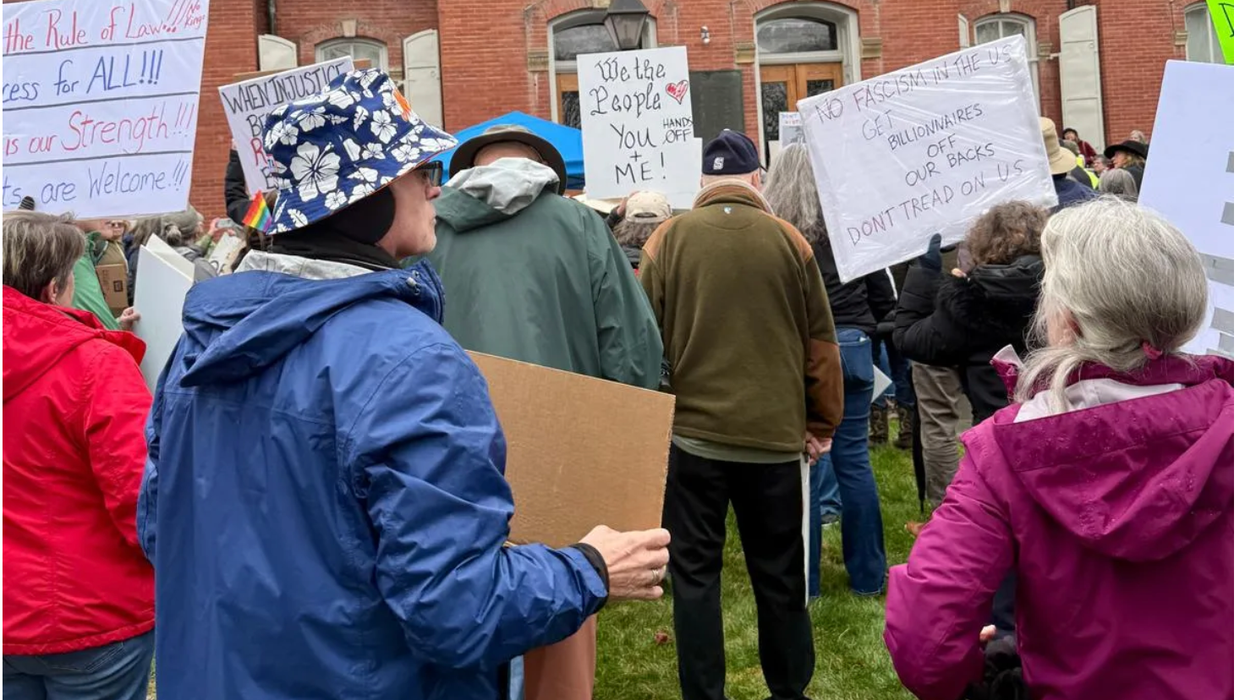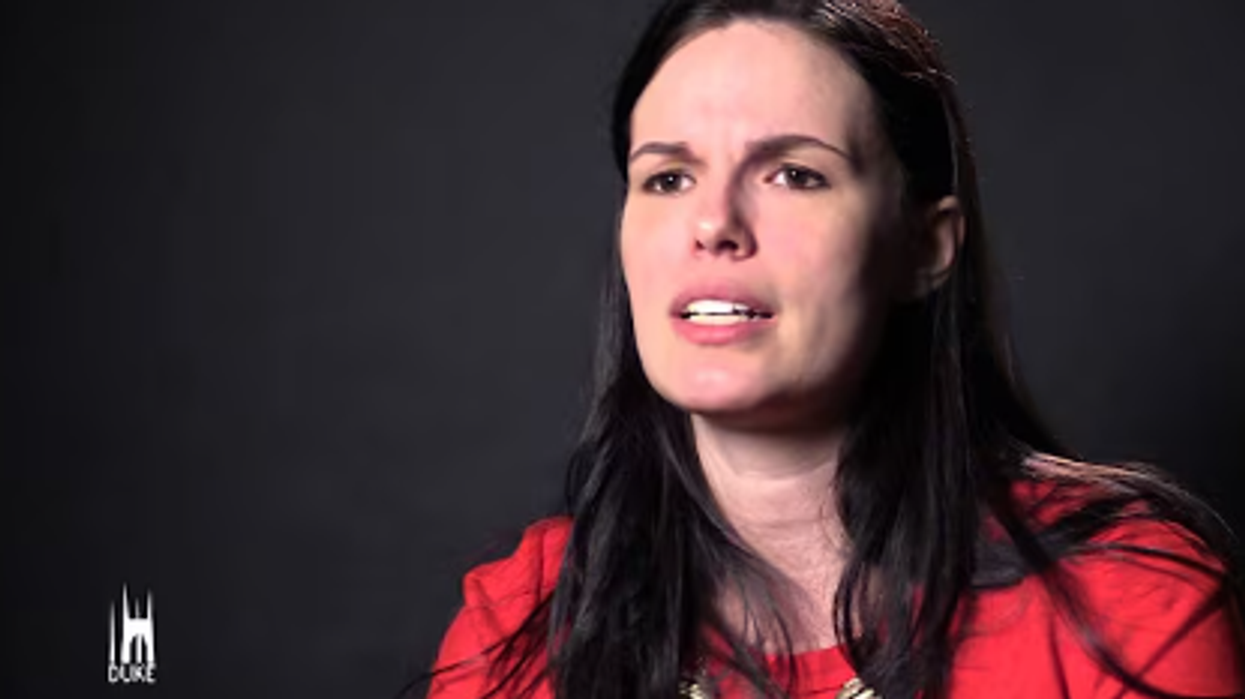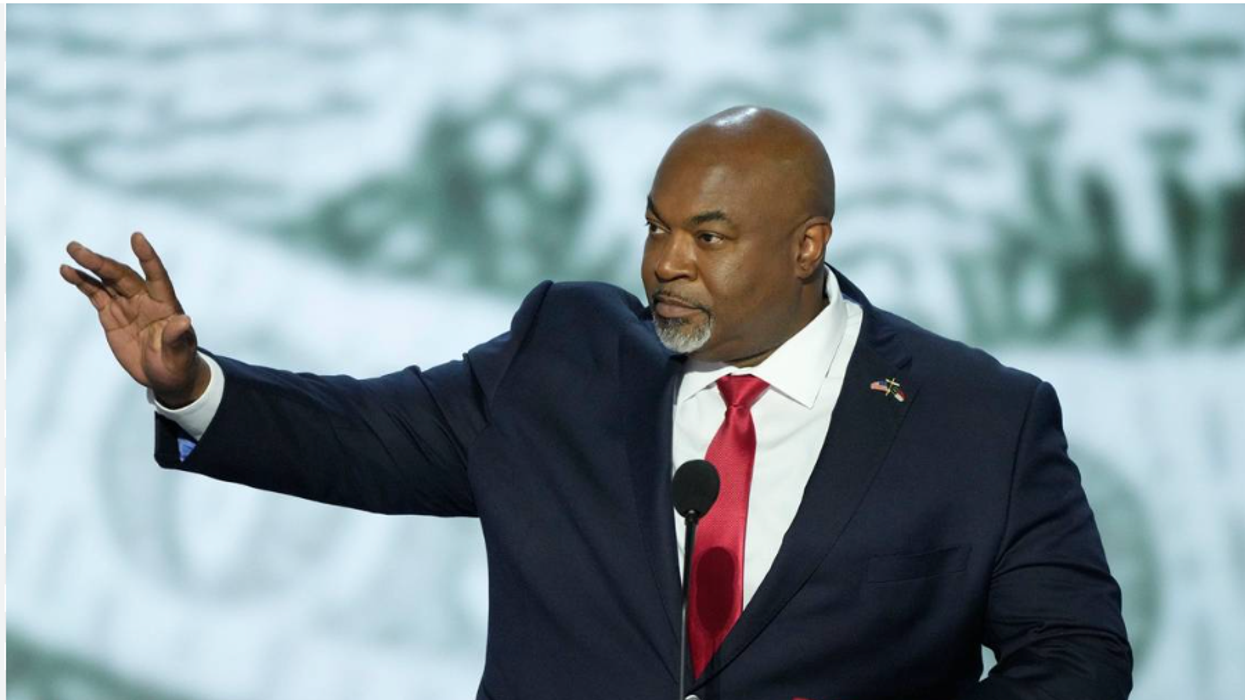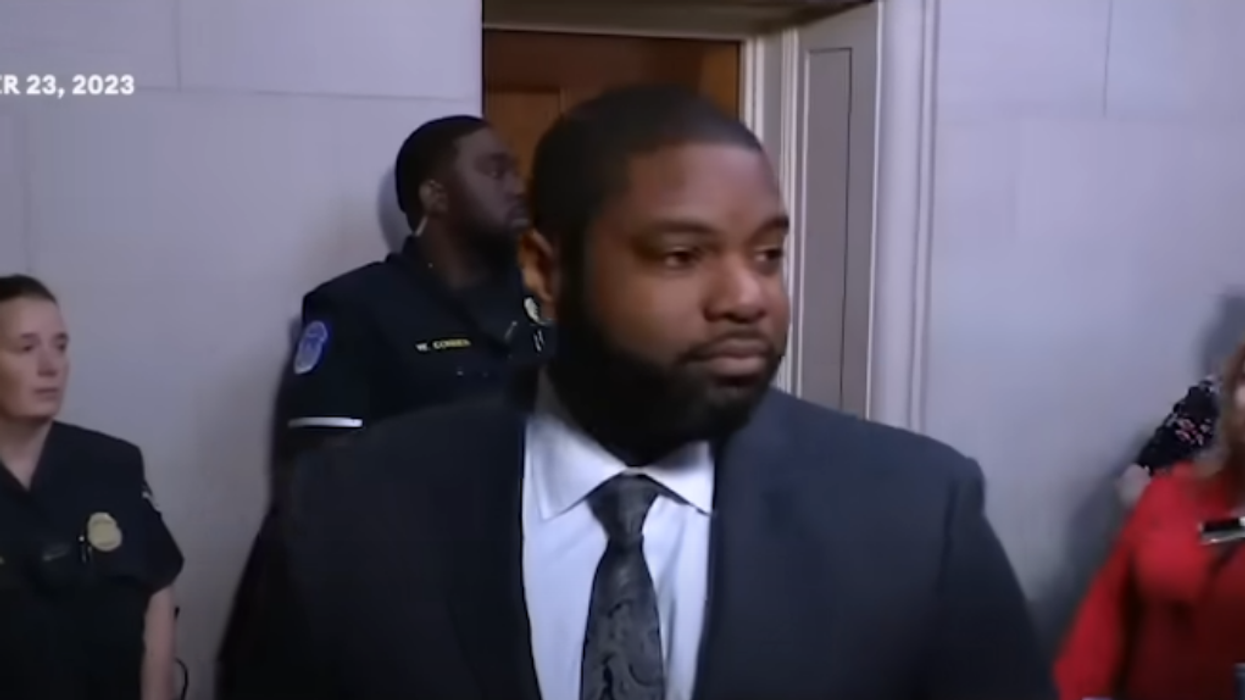ICE Tactics Disgrace Us -- And Resemble Abuses Closer To Home Than 'The Gestapo'
When Joe Rogan compares your tactics to that of the Gestapo, your rock-solid coalition might be in trouble. In January, the popular podcaster, who famously interviewed Donald Trump in the lead-up to the 2024 presidential election and endorsed him, expressed his disgust at the tactics of Immigration and Customs Enforcement on American streets.
“Are we really going to be the Gestapo? ‘Where’s your papers?’ Is that what we’ve come to?”
And Rogan is not alone.
Democratic Rep. Seth Moulton denounced “Gestapo-type stuff happening in the streets of America” after the killing of protester Alex Pretti in Minneapolis, joining other politicians, such as Minnesota Gov. Tim Walz, who have made that connection.
But the critics who flinch at the scenes out of Minneapolis need not have traveled so far back or far away for a combustible example of a clash between the power of the state and the public.
In a time before cellphones but with photographers documenting the scenes, American law enforcement acted as an occupying force rather than protectors. The citizens they came after were simply asserting their rights — to live where they wanted, to access shops and hotels and jobs they were overqualified for, to vote.
Those citizens were joined by allies who may not have been the targets of a government intent on control and subjugation but who still recognized that attacks on some were attacks on the very idea of America itself.
Ironically, during the civil rights movement, it was the federal government that provided a relief, of sorts, by sending in federalized National Guard troops to enforce laws that rebellious states resisted.
Today, it’s federal agents who storm in to grab power, smash things and people, and claim, in the false words of Vice President JD Vance, “absolute immunity.”
This isn’t an oppression Olympics, or an attempt to diminish the atrocities Hitler’s Germany unleashed or the experiences of the millions who suffered and died because of the actual Gestapo.
It’s about judging the Third Reich as singular, about seeing it for what it was, and seeing America for exactly what it is and has been. It’s an acknowledgment that fighting the powerful has always been a long and bloody struggle — abroad yes, and definitely at home.
You can be shocked at the scenes all the world now views through a haze of tear gas in previously calm Minneapolis neighborhoods, while recognizing their familiarity.
When we are used to digesting American history in TV-movie fashion, with clear heroes and villains and a clean resolution of justice by the closing credits, it fosters frustration when real life isn’t so cooperative and the people who resist don’t always win.
In fact, sometimes they die. And when that happens, it seems a senseless invitation to despair.
That’s why I’m not mad at those who observe unarmed citizens being tear-gassed, shoved and beaten, approached by masked men pointing weapons, and immediately reach to another country’s worst abuses.
We want to believe that it can’t happen here, at least not for long.
It makes it so much easier to judge what has happened and is happening in American cities from Chicago to Portland (Oregon and Maine) as aberrations in a country that mostly gets it right.
There is a reason the Trump administration is absolving and elevating U.S. soldiers who massacred Native Americans. There is strategy in attempts to obliterate any uncomfortable history about enslaved Americans who fought back, such as Ona (Oney) Judge, who fled George Washington’s President’s House, choosing a difficult and at times impoverished freedom, and never regretted it. (You will no longer find stories like hers in the Washington exhibit in Philadelphia, courtesy of America’s new rulers.)
But that erasure is a lot harder when veteran civil rights activists are alive and well, with memories of armed enforcers, police officers, sheriffs and judges who truly had absolute immunity from consequences. The children set upon by dogs and knocked down by the force of fire hoses can and do tell their stories.
Maybe I clearly see the connection because, though I was too young to know the meaning of what was going on, I remember the worry of parents who sent their three oldest out to protest, with nothing but a poster as protection.
As a journalist, I’ve interviewed folks like Democratic Rep. Jim Clyburn of South Carolina and the late John Lewis of Georgia, who often gave witness before his death.
Lewis said that when he started his trek across the Edmund Pettus Bridge in 1965, a young man in a trench coat and toting a back pack, he didn’t know if he would make it to the other side alive. And though he did, photos of Lewis aiding women felled by policemen’s batons proved his fears were righteous.
Then and now, images made America notice, especially when the faces beamed around the world included white college students, clergy and housewives, protesters who saw Black Americans as neighbors rather than “the other” and joined the fight.
Then and now, there was shock when law enforcement treated them with the same disregard as Black men, women and children on the front line.
Anyone is free to make those parallels to authoritarian countries run by lawless secret police with orders from the top.
But never forget that what we’re going through now is all-American.
It’s especially important in the year of our country’s 250th birthday, one that, let’s face it, marks a “founding” that doesn’t consider those who lived here before the British, the colonists, and the United States of America.
In the lead-up to America’s anniversary celebration, it’s necessary to highlight how we achieved the progress that deserves celebration, and to remember that there has never been progress without pushback, often from those who should be on the side of justice.
Mary C. Curtis has worked at The New York Times, The Baltimore Sun, The Charlotte Observer, as national correspondent for Politics Daily, and is a senior facilitator with The OpEd Project. She is host of the CQ Roll Call “Equal Time with Mary C. Curtis” podcast. Follow her on X @mcurtisnc3.
Reprinted with permission from Roll Call

